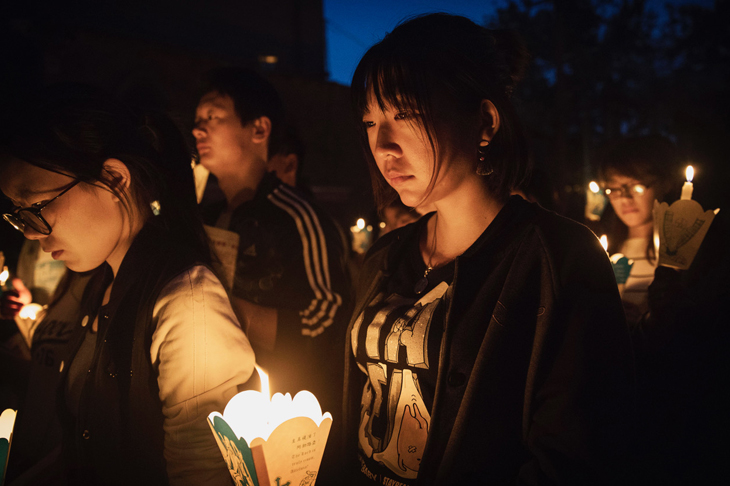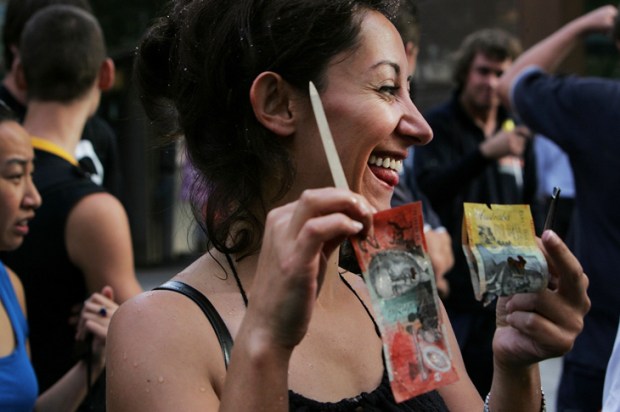This Christmas spare a thought for those not allowed to celebrate it. The Open Doors organisation estimates 309 million Christians in their list of top 50 offending nations are currently experiencing ‘very high’ to ‘extreme’ levels of persecution.
The reason varies from country to country. In Afghanistan and Libya, for instance, it’s Islamic coercion. In Eritrea and Myanmar, authoritarian nationalism. In North Korea, China and Vietnam, on the other hand, the culprit is the one-party communist state.
It’s not all bad news. In Sudan, according to Open Doors, things improved after Omar Al-Bahir’s Islamic regime was ousted by the military. An interim government ‘announced an end to the death penalty for apostasy’ and later removed ‘Islam as the state religion’. Now converts to Christianity need no longer fear the death penalty for leaving Islam, although they are still ‘attacked or otherwise discriminated against if their faith is discovered’.
A growing worry is that despotic regimes around the world are increasingly using surveillance technology to monitor their own citizens. Often this occurs under the guise of providing ‘protection’ and ‘security’ for the population. An enhanced surveillance capability is one reason why the People’s Republic of China has this year re-entered Open Doors’ top 20 watch list for the first time in a decade. The other reason is that Xi Jinping has reversed a certain leniency towards Christians that has been in place since the Cultural Revolution ended after Mao Zedong’s death in 1976. This new hard line against Christianity is justified in terms of a broader policy involving the ‘Sinicisation of all religions’.
Christianity has never had an easy time in the People’s Republic since its founding in 1949. Protestant denominations were all co-opted by the state-sanctioned Three-Self Movement while new Catholic bishops were appointed by Beijing, rejecting the primacy of the Roman pontiff. Protestant and Catholic clergy alike who rejected these changes were forced to take up menial work or worse. Anybody who joined the ‘underground’ Christian movement in the 1950s and early-1960s risked a long spell in a re-education camp and possible execution.
Conditions for Christians only went from bad to worse during the Cultural Revolution (1966-76). They were invariably included in the catalogue of ‘monsters and demons’ that required ‘sweeping away’. It is difficult to know the extent of Christian persecution during this period. Records and archives of that political convulsion are largely destroyed or otherwise unavailable. What we do know, though, is that Christianity came back stronger than ever despite – or, pointedly, because of – Mao’s Cultural Revolution. Today something in the order of 100 million people – just under seven per cent of the population – are practising Christians.
One of the many paradoxes of Christianity is its propensity to thrive rather than decline under the threat of tyrants. Rome’s Emperor Diocletian launched the so-called Great Persecution in 303 and yet only twenty or so years later Constantine was promoting Christianity to the status of favoured religion in the empire. Western historians, from the Enlightenment onwards, have quibbled about the role the ‘cult of the martyrs’ played in the lead-up to Constantine’s decision, but their naysaying is mostly beside the point. It was the prior three hundred years of discrimination and harassment – in combination with the twenty years of the so-called Great Persecution – that instigated what David Bentley Hart, in Atheist Delusions, describes as the ‘Christian revolution of the fourth century’.
Xi Jinping, paranoid and belligerent in equal measure, appears uninterested in the lessons of history. The torment of Christians commenced in 2017 in rural villages when the party suddenly demanded that portraits of Chairman Xi replace images of Jesus Christ in the local churches. Then they came for the mega-churches – the Early Rain Covenant Church in Chengdu, Zion Church in Beijing and Rongguili Church in Guangzhou. Some churches were not only closed but literally blown up.
In 2019, the high-profile pastor of Early Rain Covenant, Wang Yi, was sentenced to nine years in jail – after already spending a year in custody – for ‘illegal business operations’ and ‘inciting subversion of state power’. Of course, any possible action under the sun is potentially illegal and subversive in a one-party state without an independent judiciary or even the semblance of a free press.
Analysts Olivia Enos and Hannah So, reporting for the Heritage Foundation earlier this year, exposed the existence of new ‘transformation facilities’ purpose built to brainwash members of unsanctioned churches. One such victim in Sichuan, the pseudonymous Li Yuese, testified to the horror of ten months in a ‘windowless room without ventilation’ subjected to all manner of physical and mental abuse to make him renounce his Christain faith: ‘After you’ve been there a week, death starts to look better than staying there’.
Ultimately, there can be no compromising with communists, as Polish Catholics discovered during the Soviet era. Either you see them off or they see you off. Thus, the provisional agreement signed between the Vatican and the PRC in 2018 and renewed in 2020 has only succeeded, as Benedict Rogers writes, in ‘furthering the regime’s control of the church in China, repressing dissent and buying the Pope’s silence’. Even now Pope Francis maintains that ‘an uneasy dialogue is better than no dialogue at all’. Tell that to China’s dissenting priests, barred from preaching and some now in jail, who knew all along that any China-Vatican agreement was not worth the paper it was written on. Perhaps China’s Christians, tested by every kind of financial, psychological and physical threat imaginable, are a whole lot wiser about the wiles of communism than their Western counterparts – and a whole lot spiritually tougher into the bargain.
The message of Pastor Wang Yi’s Declaration of Faithful Disobedience, published in 2018 after his arrest, gives some sense of what Xi Jinping is up against taking on Christians who are in the world but not of it: ‘If God decides to use the persecution of this Communist regime against the church to help more Chinese people to despair of their futures, to lead them through a wilderness of spiritual disillusionment and through this to make them know Jesus… then I am joyfully willing to submit to God’s plans’.
Xi Jinping Thought, even with a hundred more transformation facilities in operation, cannot hope to compete with the power of that message.
Got something to add? Join the discussion and comment below.
Get 10 issues for just $10
Subscribe to The Spectator Australia today for the next 10 magazine issues, plus full online access, for just $10.
You might disagree with half of it, but you’ll enjoy reading all of it. Try your first month for free, then just $2 a week for the remainder of your first year.














Comments
Don't miss out
Join the conversation with other Spectator Australia readers. Subscribe to leave a comment.
SUBSCRIBEAlready a subscriber? Log in